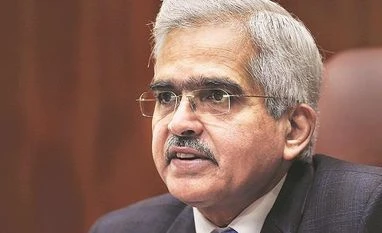His assurance assumes significance amid apprehensions about surging new Covid infections and resultant lockdowns being clamped in many cities.
“Revival of economic activity should continue unabated. I don’t see a downward revision in 10.5 per cent growth estimate for FY22, which the RBI had given last month,” Das said at the Times Network India Economic Conclave, adding he also did not foresee a repeat of the nationwide lockdown that the country had witnessed last year. With over 50,000 cases, many parts of the country — especially parts of Maharashtra — are seeing a spike in infections, roiling the equity and bond markets. The worry is that most of these infections are caused by the new strains of the virus.
The biggest worry though is the financial nerve-centre Mumbai recording the highest daily count to date in 2021 at over 5,000 on Wednesday. But Das remains upbeat and does not foresee nationwide lockdowns again.
The RBI is also scheduled to announce its monetary policy in the first week of April. With government borrowing at record high leading to a soaring yields, Das said there is no ‘fight’ between the central bank and the bond market and called for a relationship that is ‘not combative’. The government cancelled the last auction for the fiscal owing to a healthy cash position.
“There should be an orderly evolution of the yield curve,” he emphasised.
Disorderly spike in yields are an impediment to growth and will undermine economic recovery, he said. Government bond yields work as the benchmark for others to borrow from the market.
The central government’s net borrowing this year is Rs 9 trillion. In the current year, the RBI has done an open market purchase of government bonds of Rs 3 trillion. “We have also given a special dispensation with regard to the held-to-maturity basket, which makes for another Rs 4 trillion. So, Rs 7 trillion is already available,” the governor said.
For the next fiscal too, the RBI will ensure the bond purchases are of equal quantum or even more, the governor assured. The RBI’s foreign exchange reserves accumulation is for its own needs. The expansionary monetary policy of advanced economies will unspool at some stage. That will have a spillover impact on emerging market (EM) economies. EMs will have “nowhere to go but to look at their own coffers”. He said the RBI will ensure the rupee is kept stable.
On the government move to privatise more state-run banks, he said the central bank is in discussions with the government on the same. The Centre “always takes into consideration the viewpoint of the regulator” on such issues, he said.
The RBI is also working on a central bank digital currency (CBDC), albeit with utmost precaution, he said.
“While we are working on introducing a digital version of the fiat currency, the RBI is also assessing the financial stability implications of introducing such a CBDC,” he said in his keynote address.
“It needs to be appreciated that there are not many practical instances of operationalisation of CBDC the world over. This calls for utmost precaution, so that we can produce a safe and robust model,” he clarified. He said the unified payments interface has the potential to “unfold into a cheaper and faster alternative to available means for multilateral cross-border payments as well”.
The RBI’s real-time gross settlement system has multi-currency capabilities. With 24x7 operations now, “there is a scope to explore whether its footprint maybe be expanded beyond India”, he said.
“With the RBI at the forefront of nurturing innovation, the day is not far when we will experience cheaper, faster, and safer cross-border remittances,” he said, adding, the home-grown RuPay card network might “make a mark in the global financial landscape”.
India is also on the way to becoming Asia’s top financial technology (fintech) hub, with 87 per cent fintech adoption rate, against the global average of 64 per cent. The fintech market in India was valued at Rs 1.9 trillion in 2019 and is expected to reach Rs 6.2 trillion by 2025 across diversified fields, he added.
To read the full story, Subscribe Now at just Rs 249 a month
Already a subscriber? Log in
Subscribe To BS Premium
₹249
Renews automatically
₹1699₹1999
Opt for auto renewal and save Rs. 300 Renews automatically
₹1999
What you get on BS Premium?
-
Unlock 30+ premium stories daily hand-picked by our editors, across devices on browser and app.
-
Pick your 5 favourite companies, get a daily email with all news updates on them.
Full access to our intuitive epaper - clip, save, share articles from any device; newspaper archives from 2006.
Preferential invites to Business Standard events.
Curated newsletters on markets, personal finance, policy & politics, start-ups, technology, and more.
Need More Information - write to us at assist@bsmail.in
)